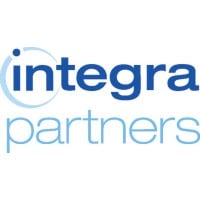The Role
The Senior Project Manager will oversee project planning, execution, and reporting, ensuring adherence to budget and schedules while managing stakeholder communication and project risks.
Summary Generated by Built In
Integra Partners is seeking an enthusiastic and collaborative individual to act as a Senior Project Manager. As the Senior Project Manager, you will plan, budget, monitor and report on the project with project management tools. You will be the bridge between upper management, stakeholders and the teams tasked with the actual execution of the project. You make sure the project plan is sound, report regularly on its progress and monitor it to ensure that its execution stays within the approved budget and schedule.
SALARY: $165,000/Annually
JOB QUALIFICATIONS: KNOWLEDGE/SKILLS/ABILITIES
The Senior Project Manager’s responsibilities include but are not limited to:
Project Planning
A project can begin and certainly is designed to fail if there first wasn’t a plan devised to see it through, on time and within budget. The project manager’s first role is to make a feasible plan that achieves the goals and objectives of the project and aligns with the organization’s overall business strategy. This involves creating a project schedule, securing the resources, defining the project goals, among many other things.
Assembling and Leading a Project Team
Project managers need resources to complete the project tasks, which include skilled and experienced team members. A project manager either takes a leadership role with an existing project team or creates one. Once a team is created, you need to create a project schedule to assign them tasks and deadlines, give them the tools to collaborate and don’t get in their way by micromanaging every activity. Meet regularly, of course, and get status updates to chart their progress while reallocating resources as needed to avoid blocking team members or overburdening them.
Time Management
Time is always ticking towards the project deadline. While communication is key to addressing changes and making sure everyone is doing what they need to do, the project manager must also define, schedule and accurately estimate the task duration to develop and maintain a realistic project schedule.
Resource Management
Working with our project management software and resource management tool, you will get your stakeholder their deliverables on time, while managing internal and external costs associated to the project.
Stakeholder Management
You want to deliver to your stakeholders what they expected or better and make sure that they’re satisfied with the results. But that doesn’t mean ignoring them to focus solely on the project. Rather, you need to be in constant communication with them, reporting on progress and being open to their feedback to keep them happy and coming back to you with future projects.
Risk Management
Problems will inevitably arise in a project. That’s called an issue. You need to be ready for them and work towards resolving them quickly, so they don’t take your project off track. Then there are risks, which are potential problems, ones that have yet to occur or might not ever. Regardless, you must figure out beforehand what the risks are and set in place a plan of action if they in fact occur.
Monitoring Progress
To make sure a project is progressing as planned, you must constantly measure it and compare those metrics against the plan you created. Therefore, you must have a way to collect project data, such as status reports from your team, to see if the actual progress of the project is meeting what you had initially planned.
Reporting and Documentation
Reporting is one of the ways you communicate with your team and stakeholders. While teams need more detailed information and stakeholders are looking for broader data to check the project’s progress, both are essential tasks for the project manager. This documentation, along with all paperwork, must be collected, signed off on and archived by the end of a project, which provides a history that you can revisit when planning for a similar project in the future.
EDUCATION: Bachelor’s degree required; MBA preferred. Business administration, management, leadership and related fields.
EXPERIENCE:
SALARY: $165,000/Annually
JOB QUALIFICATIONS: KNOWLEDGE/SKILLS/ABILITIES
The Senior Project Manager’s responsibilities include but are not limited to:
- Works with key stakeholders to understand the business needs, and creates a project management plan that aligns with the company’s strategic objectives
- Oversees strategic plan, monitoring and adapting as needed
- Creates project plans, project charters and project schedules
- Maintains project objectives
- Monitors production and quality to customer/stakeholder/sponsor standards
- Identifies and resolves issues and risks
- Reports on project progress offer viable solutions and opportunities as they arise
- Implements change practices
- Manages resources to make sure schedule is on track
- Project portfolio management
- Lead meetings and set expectations for the project team
- Maintain budget
- Reporting on projects and portfolios
Project Planning
A project can begin and certainly is designed to fail if there first wasn’t a plan devised to see it through, on time and within budget. The project manager’s first role is to make a feasible plan that achieves the goals and objectives of the project and aligns with the organization’s overall business strategy. This involves creating a project schedule, securing the resources, defining the project goals, among many other things.
Assembling and Leading a Project Team
Project managers need resources to complete the project tasks, which include skilled and experienced team members. A project manager either takes a leadership role with an existing project team or creates one. Once a team is created, you need to create a project schedule to assign them tasks and deadlines, give them the tools to collaborate and don’t get in their way by micromanaging every activity. Meet regularly, of course, and get status updates to chart their progress while reallocating resources as needed to avoid blocking team members or overburdening them.
Time Management
Time is always ticking towards the project deadline. While communication is key to addressing changes and making sure everyone is doing what they need to do, the project manager must also define, schedule and accurately estimate the task duration to develop and maintain a realistic project schedule.
Resource Management
Working with our project management software and resource management tool, you will get your stakeholder their deliverables on time, while managing internal and external costs associated to the project.
Stakeholder Management
You want to deliver to your stakeholders what they expected or better and make sure that they’re satisfied with the results. But that doesn’t mean ignoring them to focus solely on the project. Rather, you need to be in constant communication with them, reporting on progress and being open to their feedback to keep them happy and coming back to you with future projects.
Risk Management
Problems will inevitably arise in a project. That’s called an issue. You need to be ready for them and work towards resolving them quickly, so they don’t take your project off track. Then there are risks, which are potential problems, ones that have yet to occur or might not ever. Regardless, you must figure out beforehand what the risks are and set in place a plan of action if they in fact occur.
Monitoring Progress
To make sure a project is progressing as planned, you must constantly measure it and compare those metrics against the plan you created. Therefore, you must have a way to collect project data, such as status reports from your team, to see if the actual progress of the project is meeting what you had initially planned.
Reporting and Documentation
Reporting is one of the ways you communicate with your team and stakeholders. While teams need more detailed information and stakeholders are looking for broader data to check the project’s progress, both are essential tasks for the project manager. This documentation, along with all paperwork, must be collected, signed off on and archived by the end of a project, which provides a history that you can revisit when planning for a similar project in the future.
EDUCATION: Bachelor’s degree required; MBA preferred. Business administration, management, leadership and related fields.
EXPERIENCE:
- 10+ years’ experience in project management, especially larger projects with established firms
- PMP certification required; PMO experience preferred
- Knowledge of agile and lean approaches such as Scrum, Kanban, SAFe, among others.
- Experience in Agile project management teams
- Proven leadership skills
- Expertise in conflict resolution
- Analytical and strong organizational skills, with excellent verbal and written ability
- Proficiency with project management software and related tools including but not limited to Project Manager, JIRA, MS Excel, etc.
Top Skills
JIRA
Excel
Project Management Tools
Project Manager
Am I A Good Fit?

Get Personalized Job Insights.
Our AI-powered fit analysis compares your resume with a job listing so you know if your skills & experience align.
Success! Refresh the page to see how your skills align with this role.
The Company
What We Do
Integra Partners is a leading network management company that connects Orthotics and Prosthetics (O&P) and Durable Medical Equipment (DME) providers with health plans and their patients. The company works with more than 50 health plans and has over 4,000 provider locations in its network.
For more information on Integra Partners, visit www.accessintegra.com










